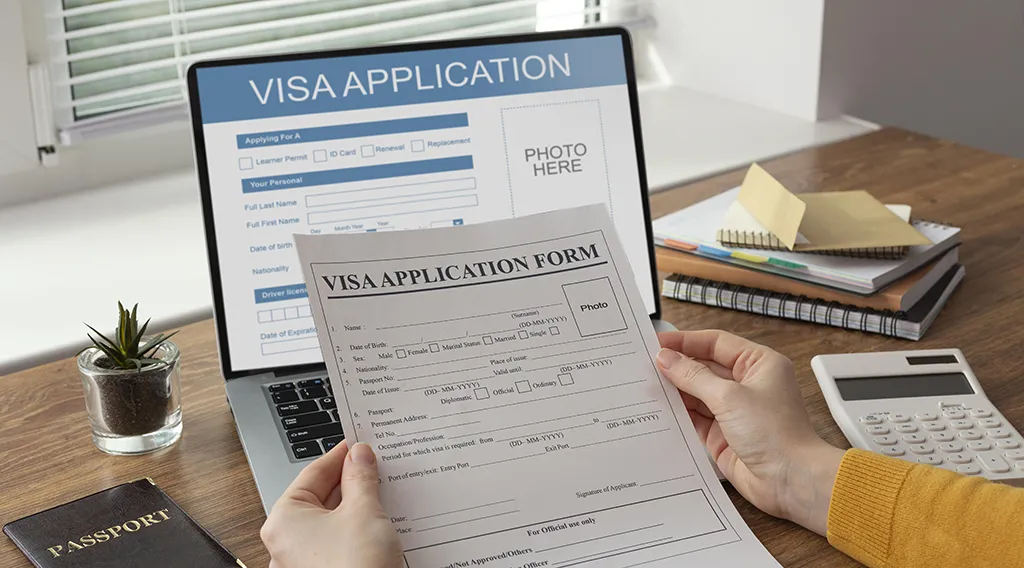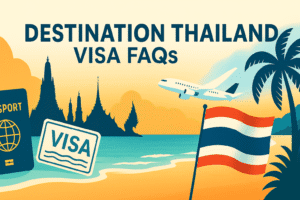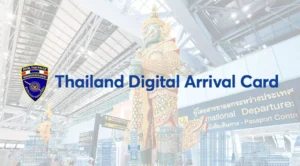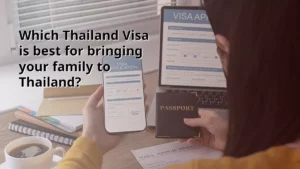If you’re working online and spending time in Thailand, your visa choice matters more than you think. While many remote workers enter on tourist stamps, the rules are changing, and relying on short-term options comes with real risks. This article shows you which Thai visa you should obtain as a digital nomad and which ones to avoid.
What is the Best Visa for Digital Nomads in Thailand?
Not all visas work for everyone, and the best choice depends on your earnings, your desired length of stay, and your line of work.
Thailand now offers three long-stay visas: Destination Thailand Visa (DTV), Long-Term Resident Visa (LTR), and Thailand Privilege Visa, each with its own rules, costs, and benefits. If you’re serious about living here while working online, these are the options you should focus on.
This guide will walk you through each visa so you can pick the one that best fits your situation and fulfills your immigration goals.
Why Shouldn’t Digital Nomads Rely on Tourist Visas or Visa-Exempt Entry?
Thai tourist visa and visa-exempt entries were never made for remote work. If you try to live in Thailand long-term using them, you’re taking a risk, as they are short, limited, and unpredictable.
Immigration officers are paying closer attention and may deny you entry if they think you’re working or living here without the right visa. Repeated visits and frequent border crossings raise red flags.
The visa-exempt period is expected to be reduced to 30 days, leaving even less room to stay legally. If you’re on a budget, the Destination Thailand Visa provides a safer option without the hassle of constant travel or uncertainty.
Who Should Consider the Destination Thailand Visa (DTV)?
If you’re freelancing or working remotely for clients outside Thailand, the Destination Thailand Visa (DTV) gives you legal permission to stay long-term. It’s valid for five years and lets you stay up to 180 days at a time. You can extend your stay once per entry, giving you up to a full year without needing to leave.
To qualify, you need to show 500,000 baht in liquid assets. That means cash in a bank account, not property or crypto. Despite this, there are no income requirements, which makes it more accessible than other long-term options.
You can’t secure a local job on this visa. However, you can run your own business or do contract work for clients abroad. You can also bring your spouse and kids, which makes this a solid option if you’re not traveling alone. However, if you stay over 180 days, you’ll be taxed as a resident.
Who Qualifies for the Long-Term Resident (LTR) Visa?
The Long-Term Resident Visa (LTR) includes a Work-from-Thailand stream designed for remote workers with steady, high-paying jobs at overseas companies. The visa itself covers other groups as well, such as wealthy retirees, skilled professionals, and investors. To qualify for the LTR Visa under this category, you need to earn at least 80,000 USD per year for the past two years. If you make between 40,000 and 80,000 USD, you can still apply if you have a master’s degree or higher, own intellectual property, or have received Series A funding.
You’ll also need five years of experience in your field from the last ten. Your employer must be a publicly listed company, a private company with at least 150 million USD in revenue over the last three years, or a qualified subsidiary (nonprofits and government agencies don’t count). However, changes have been proposed, and later this year, the minimum work experience requirement is expected to be removed, and the revenue amount will be lowered to $50 million.
This visa offers 10 years in Thailand, split into two five-year periods, and it lets you work legally. One of the biggest advantages is that you won’t be taxed on any foreign income you’re earning.
While more paperwork is needed compared to the DTV, the LTR Visa offers better long-term stability, making it ideal if you’re a high-income earner looking to stay in Thailand for years..
Who Should Choose the Thailand Privilege Visa?
The Thailand Privilege Visa keeps things simple, with no income or financial requirements to satisfy. If you can pay the one-time membership fee, you qualify. Packages start at 650,000 baht for 5 years and go up to 5 million for 20 years.
While you get the right to work in Thailand locally, you can still use it to work remotely. If your income comes from clients or companies outside Thailand, you won’t need a work permit. You can also avoid border runs and long queues and seek professional assistance with 90-day reports.
The visa includes many premium perks such as airport pickups, lounge access, medical checkups, and more. If you want to stay long-term without paperwork getting in the way, this visa keeps things simple as long as you can afford it. Siam Legal is a General Sales and Services Agent (GSSA) for the Thailand Privilege Visa and can guide you through the process.
Which Visa is Best for a Digital Nomad?
Each visa serves a different kind of remote worker. The Destination Thailand Visa works best if you’re freelancing, self-employed, or between contracts. It’s affordable, doesn’t require proof of income, and lets you stay legally without constant border runs. You just need to show that you have 500,000 baht in savings.
The Long-Term Resident Visa is best if you’re employed by a large company and earning a steady income. While requiring more paperwork and higher income, it lets you work legally in Thailand while offering tax benefits for foreign income and long-term stability.
The Thailand Privilege Visa is the simplest if you want to avoid dealing with immigration, without the need to show income or company details. As long as you can pay the membership fee, you’ll get years of access with VIP services and minimal hassle. It’s not cheap, and it doesn’t give you local work rights, but it’s convenient.
If you’re unsure, start by asking what matters more to you: lower cost, legal work status, or comfort. That answer will make your decision easier.
Applying for a Thai Visa as a Digital Nomad
Each visa has its process. For the DTV, you apply at a Thai embassy with proof of savings, a clean record, and basic documents. The LTR takes more paperwork, including income and employer details, but allows legal work once approved. The Thailand Privilege Visa is the easiest to apply for since an agent handles most of it at no extra cost after you submit your documents and payment.
You can apply for any of these visas on your own, but one mistake can set you back. Missing details, using the wrong documents, or filling out forms incorrectly can cause delays or even get your application rejected. If you plan to live and work remotely in Thailand, getting it right the first time protects you from problems and gives you peace of mind.
To avoid problems and save time, contact Siam Legal. Their immigration consultants will review your documents carefully and guide you through the visa process step by step. You can ask questions, get clear answers, and avoid mistakes that could delay your approval. With their help, you can focus on preparing for your move to Thailand without worrying about paperwork.









































